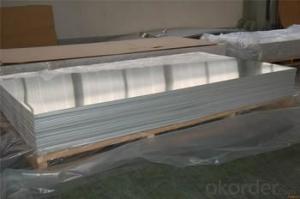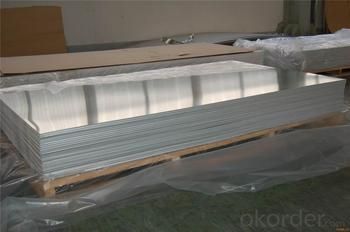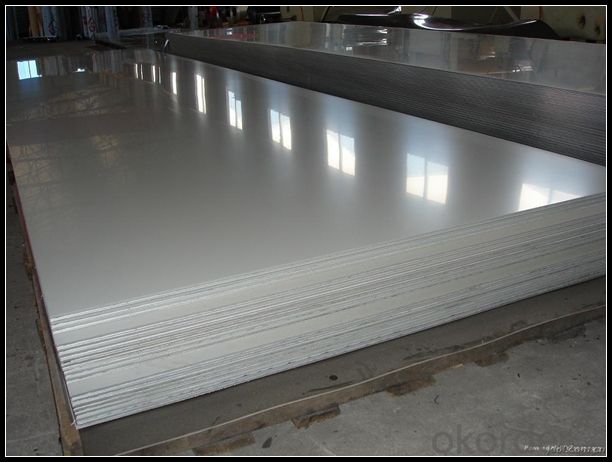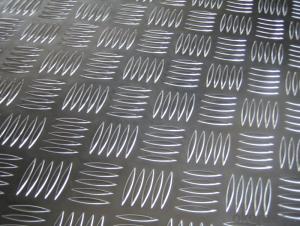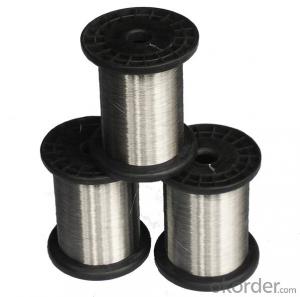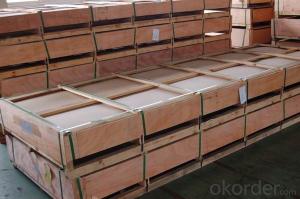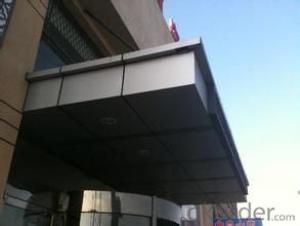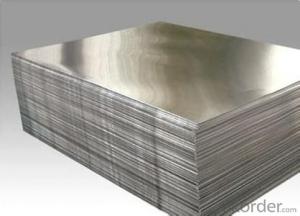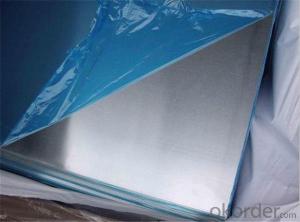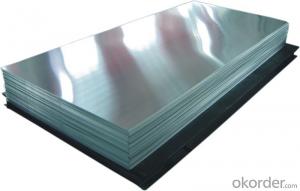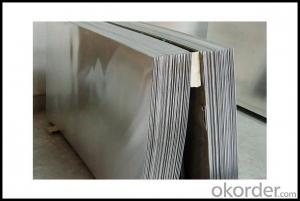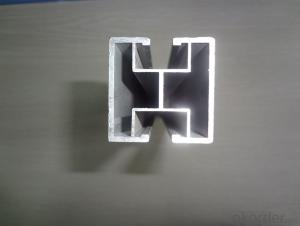Anodized Aluminum Sheets - Mill Finish Aluminum Plate with Prime Quality
- Loading Port:
- Shanghai
- Payment Terms:
- TT OR LC
- Min Order Qty:
- 5 m.t.
- Supply Capability:
- 1000 m.t./month
OKorder Service Pledge
OKorder Financial Service
You Might Also Like
Specification
1. Structure of Mill Finish Aluminium Plate With Prime Quality Description
Mill Finish Aluminium Plate With Prime Quality is one semi-finished aluminium material. This coil can be rolled down to aluminium coil,sheet,circle ect. The alloy AA1050 is widly used in building, industry ect. Its weight is much lower than steel. So many customers choosed aluminium material instead of steel.
2. Specification of Mill Finish Aluminium Plate With Prime Quality
Mill Finish Aluminium Plate With Prime Quality | |
Main Specification | |
Alloy | AA1xxx (AA1050, AA1060, AA1070, AA1100 etc.) |
AA3xxx (AA3003, AA3004, AA3005, AA3105 etc.) | |
AA5xxx, AA6XXX (AA5052,AA5083, AA5754, AA6061, AA6062 etc.) | |
AA8xxx(AA8011, AA8006 etc.) | |
Temper | H14,H16, H18, H22, H24, H26, H32,O/F, T4, T6, T651 |
Thickmess | 0.01mm-100mm |
Width | 30mm-1700mm |
Standard | GB/T 3880-2006/ASTM |
Special specification is available on customer's requirement | |
3. Application of Mill Finish Aluminium Plate With Prime Quality
(1).Interior: wall cladding, ceilings, bathrooms, kitchens and balconies, shutters, doors...
(2).Exterior: wall cladding, facades, roofing, canopies, tunnels,column covers , renovations...
(3).Advertisement: display platforms, signboards, fascia, shop fronts...
4. Feature of Mill Finish Aluminium Plate With Prime Quality
Surfact Quality :
Be free from Oil Stain, Dent, Inclusion, Scratches, Stain, Oxide Dicoloration, Breaks, Corrosion, Roll Marks, Dirt Streaks and other defect which will interfere with use,
Mechenical Property:
Chemical Composite and Mechanical Property
5. Certificate of Mill Finish Aluminium Plate With Prime Quality
SGS and ROHS(if client request, paid by client), MTC(plant provided), Certificate of Origin(FORM A, FORM E, CO), Bureau Veritas and SGS (if client request, paid by client), CIQS certificate
6. Image of Mill Finish Aluminium Plate With Prime Quality
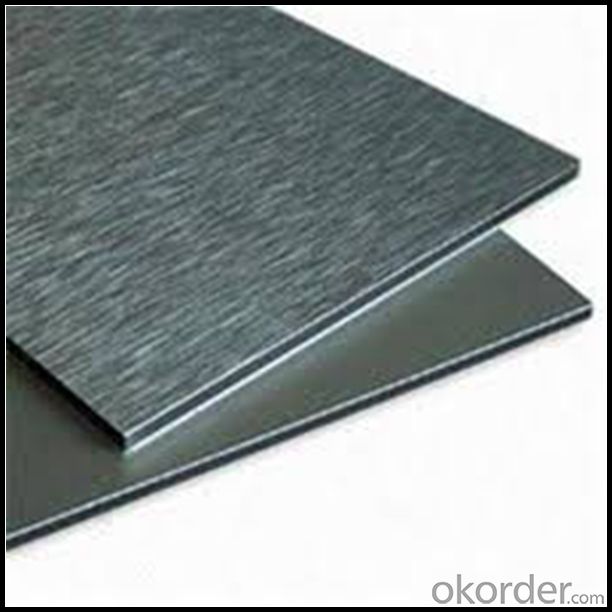
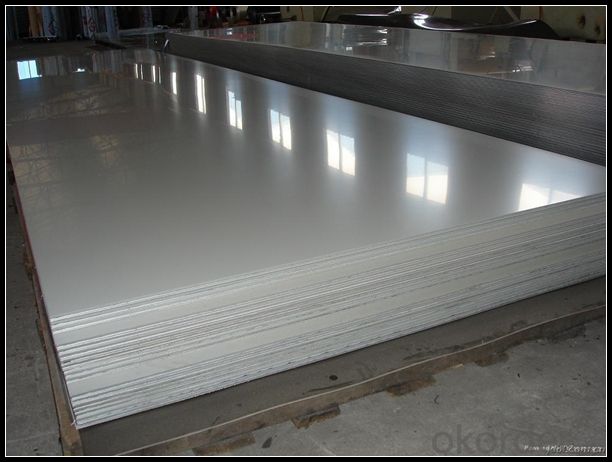
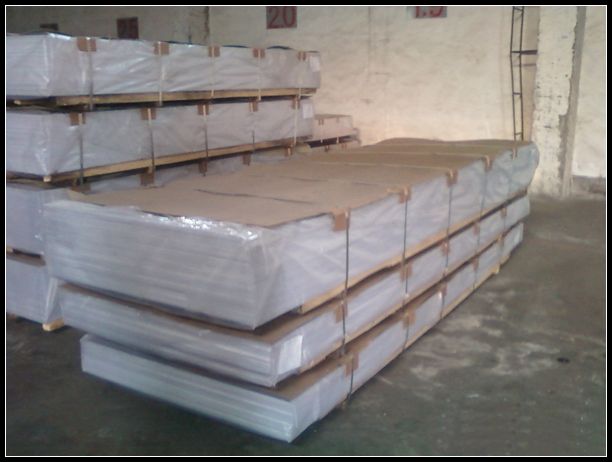
7. Package and shipping of Mill Finish Aluminium Plate With Prime Quality
First, plastic cloth with drying agent inside; Second, Pearl Wool ; Third, wooden cases with dry agent , fumigation wooden pallets, aluminum surface could cover blue PVC film
8. FAQ
1) What is the delivery time?
Depends on actual order, around 20 to 35 days
2) What is the QC system:
We have QC staff of 20 persons and advanced equipment, each production is with MTC traced from Aluminum ingot lot.
3) What market do you mainly sell to?
Australia, America, Asia, Middle East, Western Europe, Africa etc
- Q: What is the most effective technique for applying a coating to aluminum sheets?
- <p>The best method for coating aluminum sheets depends on the desired application and properties of the coating. Common methods include anodizing, which provides a protective oxide layer, powder coating for a durable finish, and electroplating for enhanced corrosion resistance. For decorative purposes, methods like painting or vacuum deposition can be used. Each method has its advantages and is chosen based on factors such as cost, durability, and aesthetic requirements.</p>
- Q: What are the common thicknesses available for aluminum sheets?
- Common thicknesses available for aluminum sheets vary depending on the specific application and industry requirements. However, some commonly available thicknesses for aluminum sheets include 0.025 inches (0.635 mm), 0.032 inches (0.81 mm), 0.040 inches (1.02 mm), 0.050 inches (1.27 mm), 0.063 inches (1.6 mm), 0.080 inches (2.03 mm), 0.090 inches (2.29 mm), 0.125 inches (3.18 mm), 0.190 inches (4.83 mm), and 0.250 inches (6.35 mm). These thicknesses are often used in various industries such as construction, automotive, aerospace, and manufacturing. However, it is important to note that aluminum sheets can be custom ordered or fabricated to meet specific thickness requirements for specialized applications.
- Q: Can aluminum sheets be perforated?
- Indeed, it is possible to perforate aluminum sheets. Perforating entails either punching holes or generating a pattern of holes in a material. Aluminum, being a flexible and adaptable metal, can be easily perforated through a variety of techniques like punching, drilling, or laser cutting. The perforation of aluminum sheets can have numerous applications, including facilitating airflow, reducing weight, improving aesthetics, or constructing filtration systems. The dimensions, form, and layout of the perforations can be tailored to satisfy particular demands and design preferences. In summary, perforating aluminum sheets can effectively enhance their functionality and visual allure.
- Q: Can aluminum sheets be used in marine environments?
- Yes, aluminum sheets can be used in marine environments. Aluminum is a commonly used material in marine applications due to its excellent corrosion resistance properties and lightweight nature. It can withstand the harsh conditions of saltwater, making it suitable for boat building, marine structures, and other marine-related uses.
- Q: The real bumper/ reinforcement bar that is behind the plastic bumpers. Magnet don't stick to it and it don't rust which both types of metal are pretty much like that.
- i agree, the main bumper support under the plastic bumper skin, is aluminum.
- Q: Is it possible to use aluminum sheets as an insulating material for walls in new construction projects?
- <p>Aluminum sheets themselves are not typically used for wall insulation due to their poor insulating properties. Aluminum is a good conductor of heat, which makes it unsuitable for insulation as it can transfer heat easily, leading to energy loss. However, aluminum can be used as a vapor barrier or as part of a composite material in combination with proper insulation. For effective insulation, materials with low thermal conductivity like fiberglass, cellulose, or foam are commonly used.</p>
- Q: What is the typical elongation of aluminum sheets?
- The typical elongation of aluminum sheets ranges from 5% to 30%, depending on the specific alloy and temper.
- Q: What is the cost of aluminum sheets compared to other materials?
- The cost of aluminum sheets compared to other materials can vary depending on various factors such as the thickness, size, quality, and market conditions. However, in general, aluminum sheets tend to be more affordable than certain materials like stainless steel or copper. Aluminum is widely available and has a lower production cost, which contributes to its relatively lower price point. Additionally, aluminum is lightweight, durable, and resistant to corrosion, making it a popular choice in various industries. It is important to note that prices may fluctuate due to market demand, availability of raw materials, and other economic factors.
- Q: Are aluminum sheets prone to warping?
- Yes, aluminum sheets can be prone to warping under certain conditions. Aluminum is a relatively soft metal, meaning it is more susceptible to bending or distorting compared to other metals like steel. However, the extent to which aluminum sheets warp depends on various factors such as the thickness of the sheet, the specific alloy used, the temperature it is exposed to, and the level of stress applied to it. Thinner aluminum sheets are generally more prone to warping as they have less structural integrity. Thicker sheets, on the other hand, are more resistant to warping due to their increased rigidity. Additionally, the specific alloy composition of the aluminum sheet can influence its susceptibility to warping. Temperature fluctuations can also cause aluminum sheets to warp. When exposed to high temperatures, aluminum expands, and if not properly supported or restrained, it may bend or warp. Similarly, rapid cooling can cause contraction, resulting in warping. Lastly, the level of stress applied to aluminum sheets can contribute to warping. Excessive bending, pressure, or unevenly distributed loads can cause the sheet to deform. To minimize warping, it is important to handle aluminum sheets with care, support them adequately during temperature changes, and avoid applying excessive stress. Additionally, using thicker aluminum sheets or choosing certain alloys with higher tensile strength can help mitigate the risk of warping.
- Q: Are aluminum sheets suitable for solar panel applications?
- Yes, aluminum sheets are suitable for solar panel applications. Aluminum is a lightweight and durable metal, making it an ideal material for constructing the frames of solar panels. Its corrosion resistance ensures that the panels can withstand outdoor conditions and last for a long time. Additionally, aluminum has a high thermal conductivity, allowing it to dissipate heat effectively, which is beneficial for solar panels as they generate heat during operation. Moreover, aluminum is a highly recyclable material, aligning with the environmentally friendly nature of solar energy. Overall, aluminum sheets are a reliable and practical choice for solar panel applications.
Send your message to us
Anodized Aluminum Sheets - Mill Finish Aluminum Plate with Prime Quality
- Loading Port:
- Shanghai
- Payment Terms:
- TT OR LC
- Min Order Qty:
- 5 m.t.
- Supply Capability:
- 1000 m.t./month
OKorder Service Pledge
OKorder Financial Service
Similar products
Hot products
Hot Searches
Related keywords
